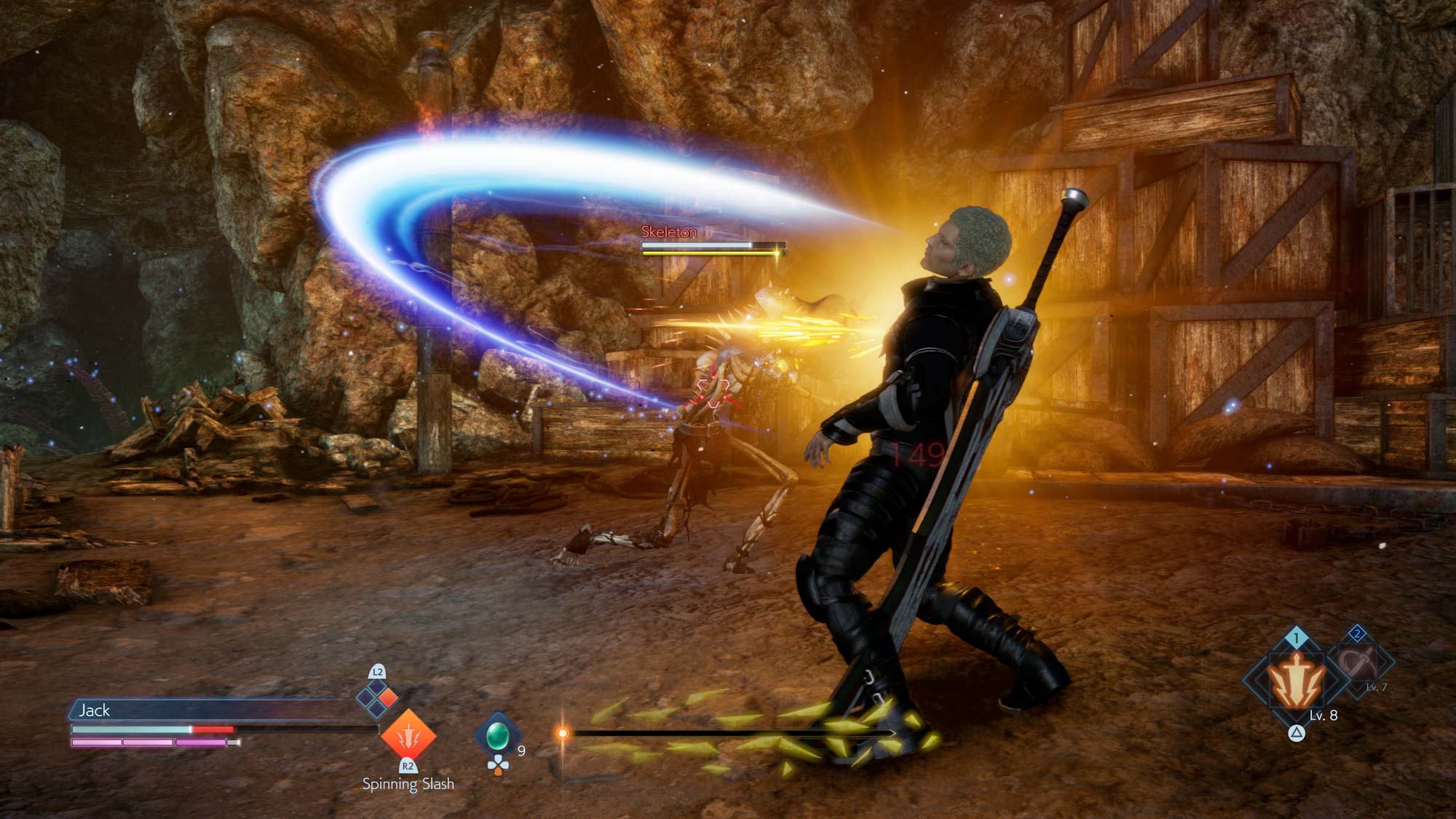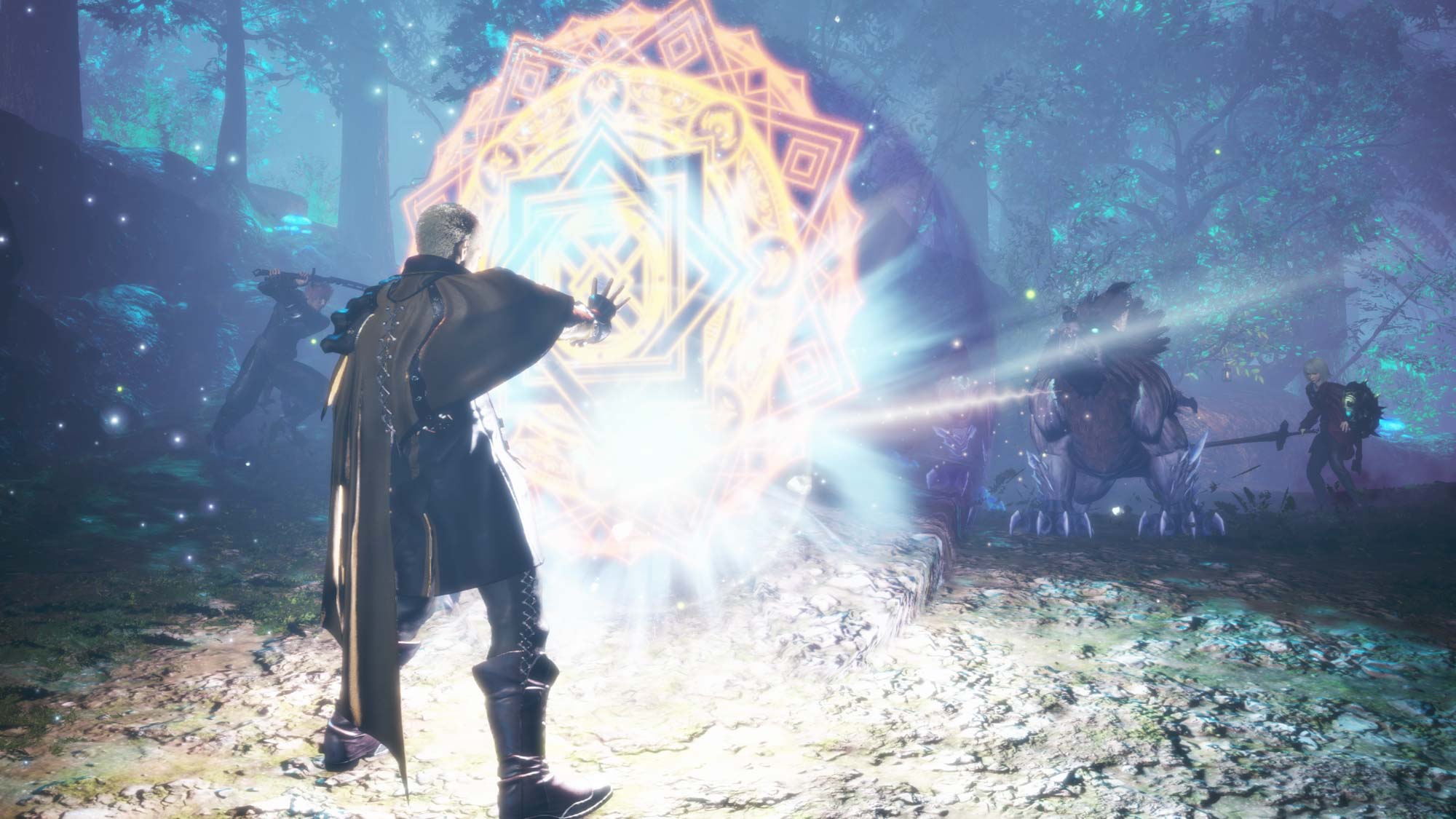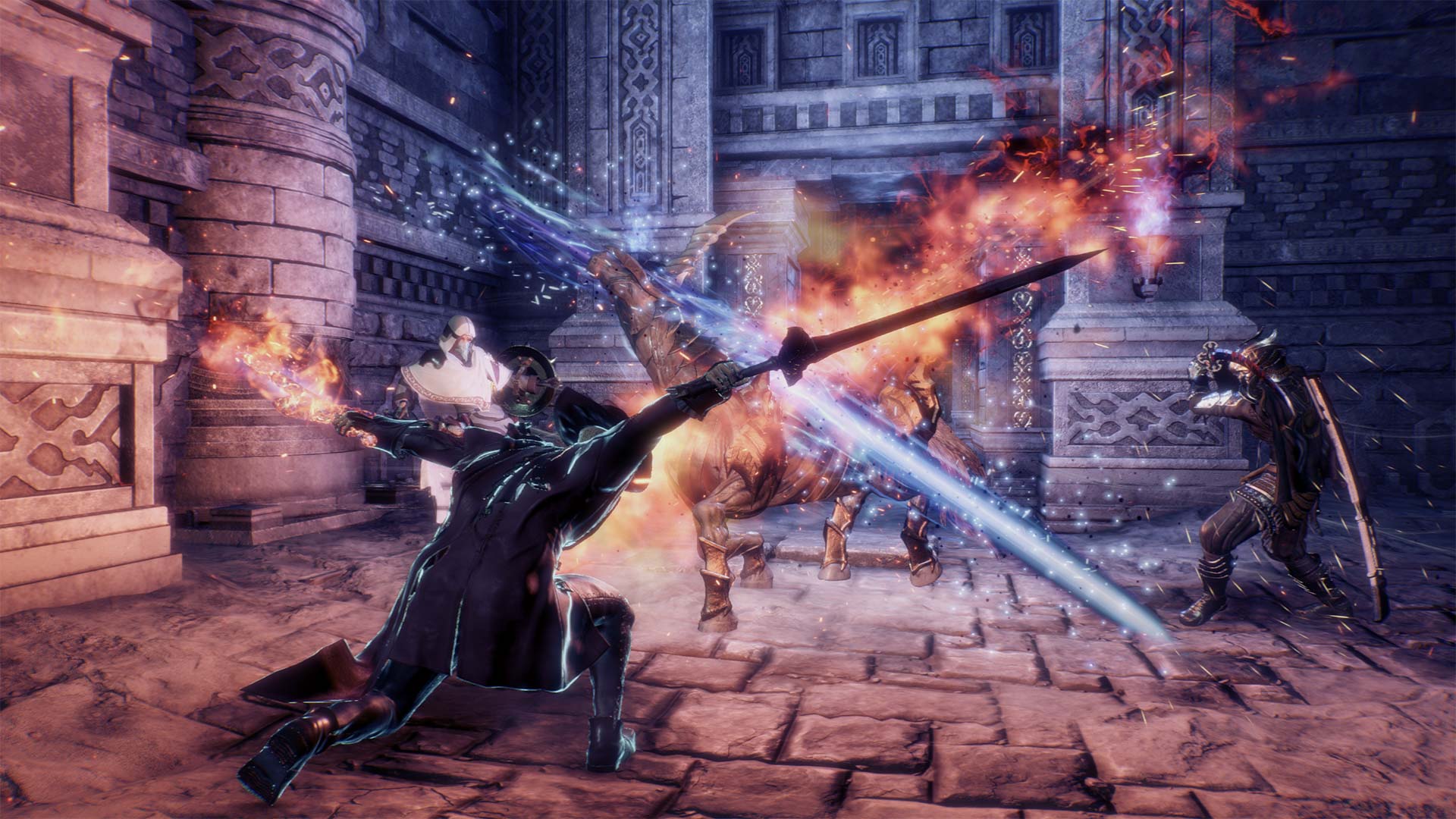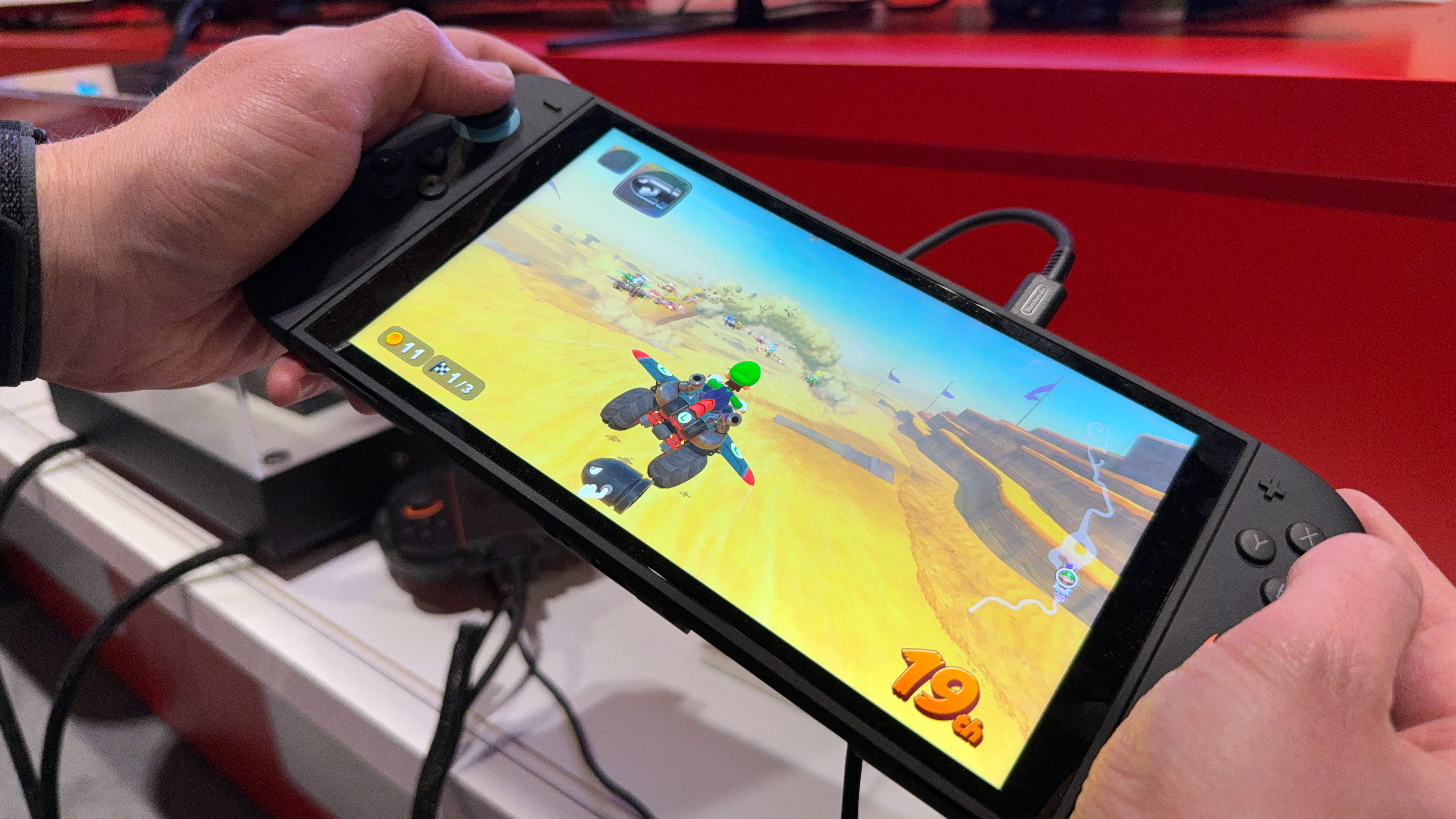Stranger of Paradise: Final Fantasy Origin is the anti-Elden Ring — and I like it
Stranger of Paradise: Final Fantasy Origin is a big mess, but I like it anyway

Welcome! This column is part of a regular series in which we share what members of the Tom's Guide staff are playing and enjoying right now, with an eye towards helping you find great games that you may have missed. Don't miss our recent column on why you should play The Outer Worlds.
“We’re here to kill Chaos,” exclaims Jack, the protagonist in Stranger of Paradise: Final Fantasy Origin. You’d better get used to this line, or some variation of it — you’re going to be hearing it a lot.
Stranger of Paradise (I’ll drop the “Final Fantasy Origin” for brevity’s sake; just pretend I kept writing it) is the instantly memetic Final Fantasy spinoff that Square Enix announced at E3 2021. On paper, it’s a reimagining of the very first Final Fantasy game, but with real-time combat instead of turn-based and tough-talking protagonists in modern clothing instead of high fantasy archetypes. It’s essentially what would happen if someone crashed an airbrushed wizard van into a Hot Topic while a Disturbed song was on the radio.
If that sounds even a little bit appealing to you, then you should play Stranger of Paradise.
The bearable lightness of Stranger of Paradise

To address the obvious question, is Stranger of Paradise a good game? I guess that depends on what you mean by “good.” Does it have logical gameplay, a comprehensible story and decent production values? Yes. Are any of these things especially innovative or polished? No. And yet, Stranger of Paradise pulls off the delightful trick of both taking itself seriously, and not taking itself seriously, simultaneously.
To put this in perspective, I just spent the last month playing Elden Ring. Elden Ring is a masterpiece of game design, combining tight combat, deep character customization, fascinating level design, inspired visuals and evocative storytelling. Like previous FromSoftware titles, Elden Ring is also extremely tough, demanding your full attention, whether you’re fighting your way past ad difficult boss or puzzling out the best way to upgrade your equipment.
I’ll remember Elden Ring for years and years to come — but the tradeoff is that playing it required active, thoughtful participation every step of the way.
Compare and contrast Stranger of Paradise. The game will optimize your equipment for you as you bash your way through hordes of marginally challenging enemies. You’ll gain job levels in almost every fight, and high-level jobs inundate you with special skills and passive perks. You have two party members at any given time, both of whom can pick up the slack if you need to hang back and heal for a while.
Sign up to get the BEST of Tom's Guide direct to your inbox.
Get instant access to breaking news, the hottest reviews, great deals and helpful tips.
The biggest difference, though, is the cadence of gameplay in Stranger of Paradise. Whereas Elden Ring is slow and methodical, Stranger of Paradise is too fast for its own good. You’ll plow full speed ahead into groups of enemies and launch yourself headfirst at the biggest foe you can find. The game isn’t easy, per se — a lot of these enemies can indeed kill you in a few hits. But when you die, there’s essentially no punishment. You start back at the closest save point, with all of the levels and equipment you earned intact. There are a few frustrating sections, but there’s almost no way to get stuck or find yourself outmatched.
Even the game’s boss fights are quite different. Like Elden Ring, Stranger of Paradise has extremely tough boss fights, with enemies that string together unblockable combos and seem to take only middling damage from even your most powerful attacks. The big difference is that the luck:skill ratio in Stranger of Paradise is much more biased toward the former. Sometimes you can go in guns blazing and take a boss out in one or two tries; sometimes, it will obliterate you before you land a single hit. But because reloads are so fast and consequence-free, it’s hard to get too frustrated by the whole process.
A video game-y video game

Stranger of Paradise is a gamer’s game. It assumes you’ve played the original Final Fantasy (and quite a few of the sequels), and that you’re willing to run with underdeveloped characters and dialogue that, charitably, doesn’t make much sense. It has fast-paced combat, an interesting character class system and just enough of a mystery to keep you hooked. It aims for the middle, and hits a bullseye.
A month ago, I reviewed Elden Ring, which will surely be one of the best games of 2022. A few weeks ago, I reviewed Babylon’s Fall, which will surely be one of the worst. It’s honestly refreshing to play a game like Stranger of Paradise, which is just fine. I’ve been happy to boot the game up for a few hours after a long day at work, and equally happy to not think about it at all in-between sessions. In a way, it’s a pure distillation of an earlier era of video games, in which they were just after-school time-killers.
The reviews for Stranger of Paradise have been all over the place, and I think this is fitting. We’ve become used to treating each new game from a major publisher as a finely honed art project. We want to know how each game can touch our hearts, or challenge our perceptions, or advance the whole medium of gaming.
Stranger of Paradise is an almost defiant shrug in the face of high art. It’s a video game. You play as an angry guy with a huge sword. You kill Chaos (I hope, eventually). There’s not much to it. And in an era where we expect each new game to be all things to all people, I can’t help but respect that. I also can’t help but enjoy the heck out of it.
Marshall Honorof is a senior editor for Tom's Guide, overseeing the site's coverage of gaming hardware and software. He comes from a science writing background, having studied paleomammalogy, biological anthropology, and the history of science and technology. After hours, you can find him practicing taekwondo or doing deep dives on classic sci-fi.

